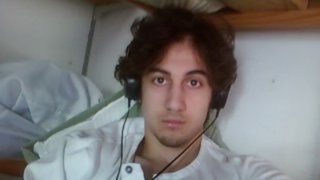
- The Supreme Court heard arguments over whether the death sentence should be reinstated for Dzhokhar Tsarnaev, who was convicted of carrying out the deadly Boston Marathon bombing.
- The Biden administration is asking the justices to reverse an appeals court's decision to vacate the death penalty for Tsarnaev.
- The federal government is pushing for the death penalty for Tsarnaev even as President Joe Biden's Justice Department takes action to halt federal executions.
The Supreme Court heard oral arguments Wednesday on whether the death sentence should be reinstated for Dzhokhar Tsarnaev, who was convicted of carrying out the deadly 2013 Boston Marathon bombing.
WATCH ANYTIME FOR FREE
>Stream NBC10 Boston news for free, 24/7, wherever you are. |
The court's liberal justices grilled a Biden administration lawyer who argued that they should reimpose the death penalty for Tsarnaev, 28. The sentence was recommended by a jury but vacated by an appeals court. Some of the court's conservatives, who outnumber the liberals six to three, appeared skeptical of the arguments made by Tsarnaev's attorney.
The justices focused largely on evidence involving Tsarnaev's late brother, Tamerlan Tsarnaev, that was omitted from Dzhokhar's trial in federal district court in Massachusetts.
Get updates on what's happening in Boston to your inbox. Sign up for our >News Headlines newsletter.
Defense lawyers said the district court's exclusion of that evidence — which was related to a triple murder that Tamerlan's friend accused him of committing — undermined their case that Tamerlan influenced Dzhokhar.
Justice Elena Kagan noted to Deputy Solicitor General Eric Feigin that the jury was allowed to hear evidence about Tamerlan "poking somebody in the chest" and shouting at people "all because that showed what kind of person Tamerlan was and what kind of influence he might have had over his [younger] brother."
"And yet this court kept out evidence that Tamerlan led a crime that resulted in three murders?" Kagan asked.
Money Report
The federal government has argued to the Supreme Court that the appellate judgment was wrong, and that the U.S. will have to conduct a fraught new penalty trial if its judgment is allowed to stand.
Lawyers for Tsarnaev have responded that even if the high court vacated the appellate ruling and sent the case back for further review, issues with the jury and the evidence presented during Tsarnaev's trial would lead to the same outcome.
The federal government is pushing for the death penalty for Tsarnaev even as President Joe Biden's Justice Department takes action to halt federal executions. Former President Donald Trump's administration, which asked the Supreme Court to review the appeals court's ruling on Tsarnaev, carried out 13 such executions during Trump's final months in office.
"I'm wondering what the government's endgame is here," Justice Amy Coney Barrett asked Feigin.
"If you win presumably that means that [Tsarnaev] is relegated to living under threat of a death sentence that the government doesn't plan to carry out, so I'm just having trouble following the point," Barrett said.
Feigin responded that the government "continues to believe the jury imposed a sound verdict." He said that that judgment for capital punishment for Tsarnaev "should be respected."
The U.S. in its petition to the Supreme Court described the April 15, 2013, Boston bombings as "one of the worst domestic terrorist attacks since the 9/11 atrocities."
Three people, including an 8-year-old child, were killed and hundreds were wounded when two pressure-cooker bombs filled with metal shrapnel detonated near the crowded marathon finish line. Dzhokhar and Tamerlan Tsarnaev, both described as jihadists, fled the scene, kicking off a four-day manhunt during which Massachusetts Institute of Technology Police Officer Sean Collier was shot dead.
Tamerlan died in a gunfight with police in Watertown, Massachusetts. An injured Dhzokhar, who ran over his brother as he drove away in a stolen Mercedes, was found hours later hiding in a boat parked in a nearby backyard.
A federal jury in Massachusetts convicted Tsarnaev, who was 19 at the time of the attack, on 30 counts and recommended the death penalty for six of them, including using weapons of mass destruction that killed people.
The U.S. Court of Appeals for the First Circuit in July 2020 affirmed most of Tsarnaev's convictions but erased his capital sentences.
It found that the lower court wrongly denied requests from Tsarnaev's attorneys to have prospective jurors asked about their media exposure to the facts of the case during the jury-selection process.
The appeals court also ruled that the district court erred by excluding evidence related to a triple murder in Waltham, Massachusetts, on the 10-year anniversary of the Sept. 11, 2001, terror attacks.
Tamerlan had been implicated in those attacks by his friend Ibragim Todashev. He claimed to authorities that Tamerlan recruited him to rob three men, who were bound with duct tape before Tamerlan slit their throats.
Todashev was shot dead after he allegedly attacked investigators after agreeing to write out a confession. No charges have been brought in the Waltham killings.
The district court was mistaken to omit that evidence from Dhzokhar's trial, his lawyers said, "because it showed Tamerlan's planning of extreme violence and his ability to influence others to join him in those acts."






